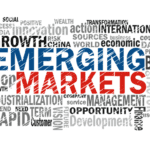The Impact of Geopolitical Tensions on Global Supply Chains
Geopolitical tensions have cast a long shadow over global supply chains, exacerbating existing vulnerabilities and creating new challenges. Trade wars, sanctions, and political instability have disrupted the flow of goods and services, leading to increased costs, delayed shipments, and product shortages.
Key Risk Factors Driving Supply Chain Disruptions
Several key factors contribute to supply chain disruptions:
- Natural Disasters: Earthquakes, hurricanes, and floods can cripple infrastructure and disrupt production.
- Extreme Weather Events: increasing frequency and intensity of natural disasters, such as hurricanes, floods, and wildfires, can disrupt transportation and logistics.
- Pandemics: Global health crises, such as COVID-19, can lead to widespread lockdowns, labor shortages, and supply chain bottlenecks.
- Geopolitical Tensions: Trade wars, sanctions, and political instability can disrupt trade flows and increase transportation costs.
- Cybersecurity Threats: Cyberattacks can compromise supply chain systems, leading to data breaches, operational disruptions, and financial losses.
- Demographic Shifts: Aging populations and declining birth rates in many countries can lead to labor shortages, particularly in manufacturing and logistics sectors.
- Skill Gaps: A mismatch between the skills required by employers and the skills possessed by the workforce can hinder productivity and innovation.
- Single Points of Failure: Reliance on a limited number of suppliers or transportation routes can increase vulnerability to disruptions.
The Economic Consequences of Supply Chain Disruptions
Supply chain disruptions can have significant economic consequences, including:
- Inflation: Increased costs for raw materials, transportation, and labor can lead to higher prices for consumers.
- Economic Slowdown: Disruptions can hinder economic growth by reducing production and limiting consumer spending.
- Job Losses: Companies may be forced to lay off workers or reduce hours to cope with supply chain challenges.
Strategies for Building a Resilient Supply Chain
To mitigate the impact of supply chain disruptions, businesses should consider the following strategies:
- Diversification: Diversify suppliers and distribution channels to reduce reliance on a single source.
- Risk Assessment: Conduct regular risk assessments to identify potential vulnerabilities and develop contingency plans.
- Inventory Management: Optimize inventory levels to balance supply and demand while minimizing holding costs.
- Technology Adoption: Utilize technology to improve supply chain visibility, track shipments, and respond to disruptions in real-time.
- Strong Supplier Relationships: Build strong relationships with suppliers to foster collaboration and trust.
The Role of Technology in Mitigating Supply Chain Risks
Technology plays a crucial role in building resilient supply chains:
- Internet of Things (IoT): IoT devices can track the movement of goods and provide real-time visibility into the supply chain.
- Artificial Intelligence (AI): AI-powered analytics can identify patterns, predict disruptions, and optimize supply chain operations.
- Blockchain: Blockchain technology can enhance transparency, security, and traceability in supply chains.
Enhancing Transparency, Security, and Traceability with Blockchain
Blockchain technology, with its decentralized and immutable nature, has the potential to revolutionize supply chains. It offers a unique solution to enhance transparency, security, and traceability in various industries.
Transparency
- Single Source of Truth: Blockchain creates a shared, immutable ledger accessible to all authorized participants. This eliminates information silos and ensures that everyone has access to the same, verified information.
- Real-time Visibility: By recording every transaction and event, blockchain provides real-time visibility into the supply chain. This enables businesses to track the movement of goods, identify bottlenecks, and make data-driven decisions.
- Enhanced Trust: The transparency offered by blockchain fosters trust among all stakeholders, from suppliers to consumers. It reduces the risk of fraud, counterfeiting, and other unethical practices.
Security
- Immutability: Once data is recorded on a blockchain, it cannot be altered or deleted. This ensures the integrity of the information and protects it from tampering.
- Cryptography: Blockchain utilizes strong cryptographic techniques to secure data and transactions. This prevents unauthorized access and protects sensitive information.
- Distributed Ledger: The decentralized nature of blockchain makes it resistant to attacks. To compromise the system, hackers would need to simultaneously attack multiple nodes, which is highly unlikely.
Traceability
- End-to-End Tracking: Blockchain enables end-to-end tracking of products, from their origin to the final consumer. This level of traceability is crucial for industries like food, pharmaceuticals, and luxury goods.
- Product Provenance: By recording the journey of a product, blockchain can verify its authenticity and origin. This helps combat counterfeiting and ensures that consumers receive genuine products.
- Supply Chain Optimization: Traceability data can be used to identify inefficiencies, optimize logistics, and reduce costs.
By leveraging blockchain technology, businesses can build more efficient, transparent, and secure supply chains. This can lead to cost savings, improved customer satisfaction, and a stronger reputation. As blockchain technology continues to evolve, its potential to transform industries and create a more trustworthy digital economy is immense.
Emerging Opportunities in a Disrupted Supply Chain Landscape
While supply chain disruptions pose significant challenges, they also present opportunities for innovation and growth:
- Reshoring and Nearshoring: Bringing production closer to home can reduce lead times, improve quality control, and mitigate geopolitical risks.
- Digital Supply Chain Solutions: Investing in digital technologies can improve efficiency, reduce costs, and enhance customer satisfaction.
- Sustainable Supply Chains: Focusing on sustainability can attract environmentally conscious consumers and reduce long-term risks.
By understanding the risks and opportunities associated with supply chain disruptions, businesses can develop strategies to build resilient and sustainable supply chains.
The Role of Government Policies and International Cooperation in Addressing Supply Chain Challenges
Government policies and international cooperation play a crucial role in addressing supply chain challenges. By implementing strategic policies and fostering collaborative partnerships, governments can mitigate risks, improve efficiency, and enhance the resilience of global supply chains.
Government Policies
Governments can take several steps to bolster supply chain resilience:
- Infrastructure Investment: Investing in transportation infrastructure, such as ports, roads, and railways, can improve the efficiency of logistics and reduce the impact of disruptions.
- Trade Facilitation: Simplifying customs procedures and reducing barriers can streamline trade and reduce costs.
- Regulatory Reform: Streamlining regulations and reducing bureaucratic hurdles can make it easier for businesses to operate and innovate.
- Investment in Technology: Supporting research and development in technologies like AI, IoT, and blockchain can enhance supply chain visibility and efficiency.
- Diversification: Encouraging businesses to diversify their supply chains can reduce dependence on a single source and mitigate risks.
- Reshoring and Nearshoring: Promoting domestic production or relocating production to nearby countries can reduce reliance on distant suppliers and improve supply chain responsiveness.
International Cooperation
International cooperation is essential for addressing global supply chain challenges. Countries can work together:
- Share Information and Best Practices: Sharing information on supply chain disruptions, vulnerabilities, and best practices can help countries coordinate their responses.
- Develop Joint Standards and Regulations: Harmonizing standards and regulations can facilitate trade and reduce compliance costs.
- Invest in Joint Infrastructure Projects: Collaborative investments in infrastructure can enhance connectivity and reduce transportation costs.
- Promote Fair Trade and Sustainable Practices: Encouraging fair trade and sustainable practices can help build resilient and ethical supply chains.
- Establish Crisis Response Mechanisms: Developing joint crisis response mechanisms can help countries coordinate their efforts to mitigate the impact of disruptions.
Conclusion
By working together, governments and businesses can build more resilient, sustainable, and equitable global supply chains that are better equipped to withstand future challenges.
Hemispheres Investment Management
Hemispheres Investment Management is a wealth manager with a global (domestic and international investments in the same portfolio) investment management focus. Our team of seasoned professionals have over 35-years of experience researching, managing or strategizing investments and investment portfolios, including deep proficiency in U.S., international and emerging markets. Hemispheres can assist you in diversifying your portfolio globally. Global Equities is Hemispheres’ flagship investment product.
Please contact Hemispheres Investment Management for a free consultation. We provide guidance and strategies to assist you in optimizing your investment policy and helping you achieve your investment goals. Book a meeting.






